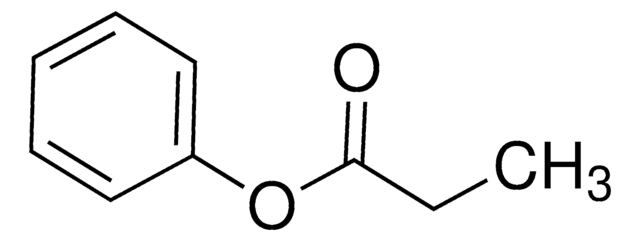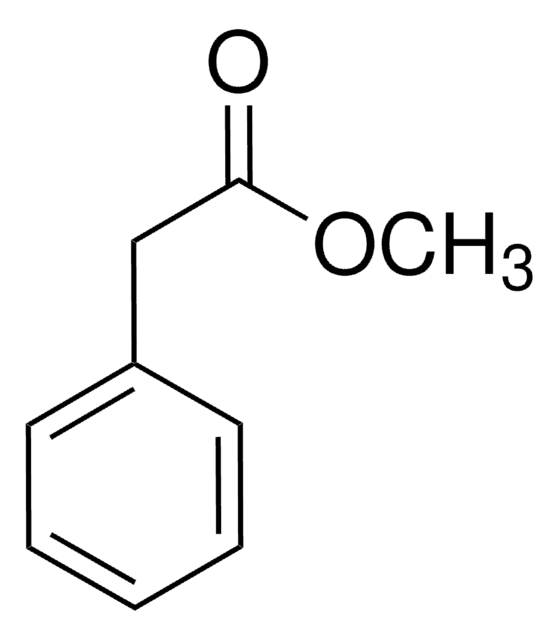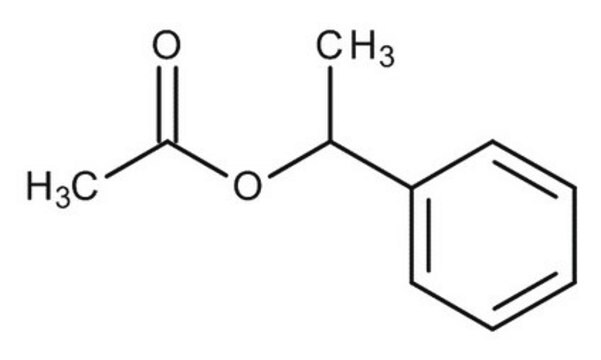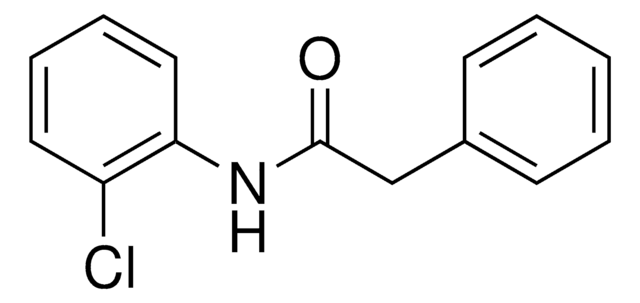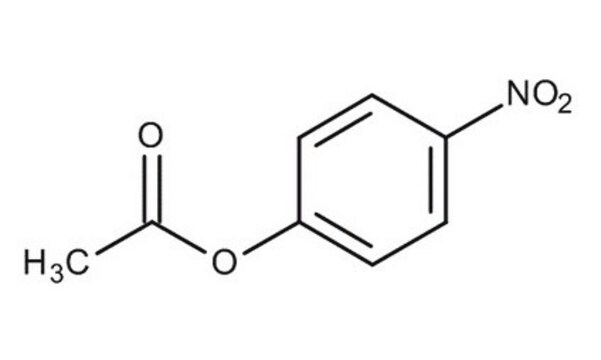108723
Phenyl acetate
99%
Synonym(s):
Acetic acid phenyl ester
About This Item
Recommended Products
Quality Level
Assay
99%
refractive index
n20/D 1.501 (lit.)
bp
196 °C (lit.)
density
1.073 g/mL at 25 °C (lit.)
functional group
ester
phenoxy
SMILES string
CC(=O)Oc1ccccc1
InChI
1S/C8H8O2/c1-7(9)10-8-5-3-2-4-6-8/h2-6H,1H3
InChI key
IPBVNPXQWQGGJP-UHFFFAOYSA-N
Gene Information
human ... PON1(5444)
Looking for similar products? Visit Product Comparison Guide
Related Categories
General description
Signal Word
Warning
Hazard Statements
Hazard Classifications
Acute Tox. 4 Oral
Storage Class Code
10 - Combustible liquids
WGK
WGK 2
Flash Point(F)
170.6 °F - closed cup
Flash Point(C)
77 °C - closed cup
Personal Protective Equipment
Choose from one of the most recent versions:
Already Own This Product?
Find documentation for the products that you have recently purchased in the Document Library.
Customers Also Viewed
Articles
The Fries rearrangement reaction is an organic name reaction which involves the conversion of phenolic esters into hydroxyaryl ketones on heating in the presence of a catalyst. Suitable catalysts for this reaction are Brønsted or Lewis acids such as HF, AlCl3, BF3, TiCl4, or SnCl4. The Fries rearrangement reaction is an ortho, para-selective reaction, and is used in the preparation of acyl phenols. This organic reaction has been named after German chemist Karl Theophil Fries.
Our team of scientists has experience in all areas of research including Life Science, Material Science, Chemical Synthesis, Chromatography, Analytical and many others.
Contact Technical Service

